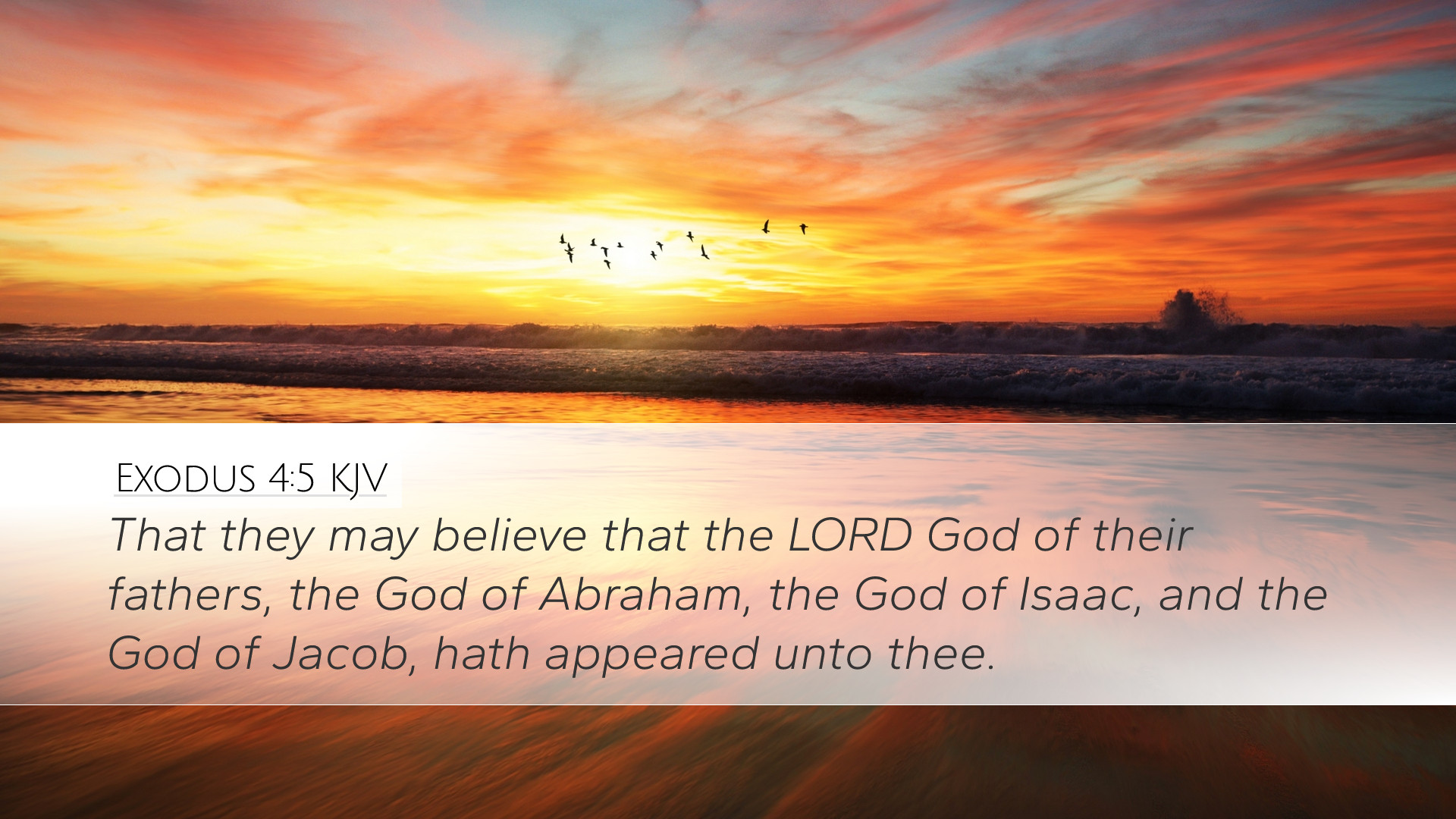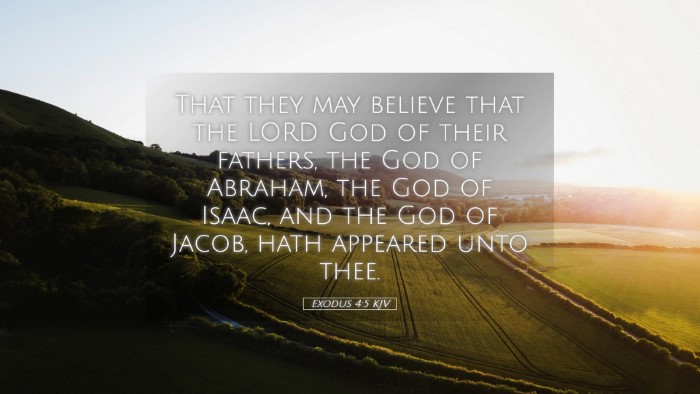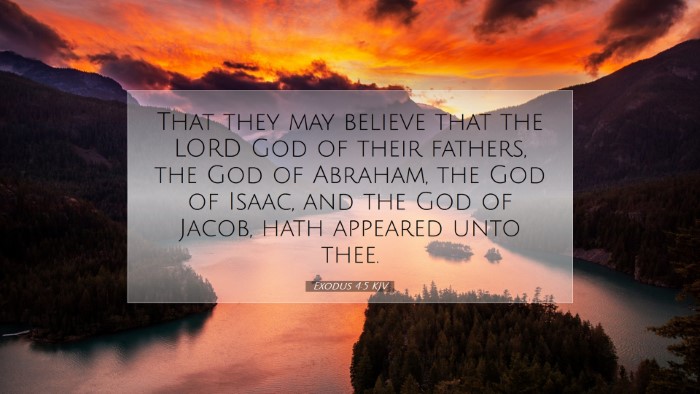Exodus 4:5 - Bible Commentary
Bible Verse: "That they may believe that the Lord God of their fathers, the God of Abraham, the God of Isaac, and the God of Jacob, hath appeared unto thee."
Introduction
This verse is a pivotal moment in the narrative of Moses' call and the commissioning by God to be the deliverer of His people from bondage in Egypt. It serves not only as an assurance to Moses but also as a crucial support for the faith of the Israelites. The context reveals God's compassionate intervention in the desperate situation of His people.
Insights from Matthew Henry
Matthew Henry emphasizes that this part of Moses' calling highlights God's intention to affirm His continuous relationship and covenant with His people. Henry interprets the phrase "that they may believe" as an invitation for the Israelites to have faith in God's enduring promises.
He explains that Moses' assignment is not solely to perform miraculous signs but also to facilitate belief in Yahweh's active presence among His people. The mention of the patriarchs—Abraham, Isaac, and Jacob—illustrates God's historical faithfulness, reinforcing the connection between the present and the faith of their forefathers.
Insights from Albert Barnes
Albert Barnes provides a detailed look into the implications of the phrase "that they may believe." He notes that this belief is pivotal not just for the immediate acceptance of Moses as a leader but for a profound realization of God’s nature and character. Barnes underlines that God has chosen to reveal Himself in a personal manner, anchoring His authority in His relationship with the patriarchs.
He also mentions the context of faith recovery—how the Israelites, burdened by oppression, may have lost sight of God's promises. Thus, the miraculous signs that Moses is to perform will act as a catalyst for restoring their faith. Barnes elaborates that God’s miraculous power will serve as confirmation of His covenant and a reminder of His promises.
Insights from Adam Clarke
Adam Clarke adds another layer by analyzing the spiritual significance of God's revelation. He points out that God is identified through specific personal revelations to ancient figures, and this serves to bridge historical continuity. Clarke asserts that each patriarch represents aspects of God’s covenant relationship with His people, making their legacy vital to understanding God's mission in Moses.
Furthermore, Clarke highlights the need for tangible proofs of God’s presence, taking into account the deep-rooted skepticism that had formed among the Israelites. The call to “believe” is constructed not merely as an expectation but as an invitation to trust in God’s promises based on previous demonstrations of His power and faithfulness.
Theological Reflection
This verse invites pastors and scholars to consider the nature of faith and God's involvement in human history. It illustrates a God who is deeply personal, engaging with His people and their doubts through intimate reminders of His past provisions. It reignites the importance of remembering God's faithfulness as a cornerstone of spiritual belief and practice.
The reference to the patriarchs signifies that God's plan unfolds through history, and understanding one's spiritual heritage fosters a sense of identity and purpose. This commentary also challenges modern believers to consider how God continues to speak and act today, encouraging them to affirm their faith in a world often characterized by uncertainty and strife.
Application for Contemporary Believers
- Encouragement in Trials: Just as the Israelites needed to be reminded of God's past faithfulness, believers today can find hope in reflecting on God's work in their lives.
- Faith-Driven Leadership: Leaders within the church, like Moses, are called to remind their communities of God's ongoing promises and involvement in their lives.
- Understanding Heritage: Engaging with the stories of the faithful who have come before us can provide context and encouragement in our walks with God.
- Expecting the Miraculous: As God provided signs for Moses, believers are encouraged to remain open to God's miraculous work in their own contexts.
Conclusion
Exodus 4:5 provides a rich tapestry of thought for pastors, students, and theologians alike. Drawing from the insights of Henry, Barnes, and Clarke, we see a multi-faceted view of faith's necessity in understanding God's character and His historical dealings with humanity. This verse exemplifies how God calls individuals not just to leadership roles but to actively participate in the furtherance of faith within their communities. As we explore the depth of this passage, may we deepen our understanding of God's call on our lives and the invitation to believe in His unchanging nature.


